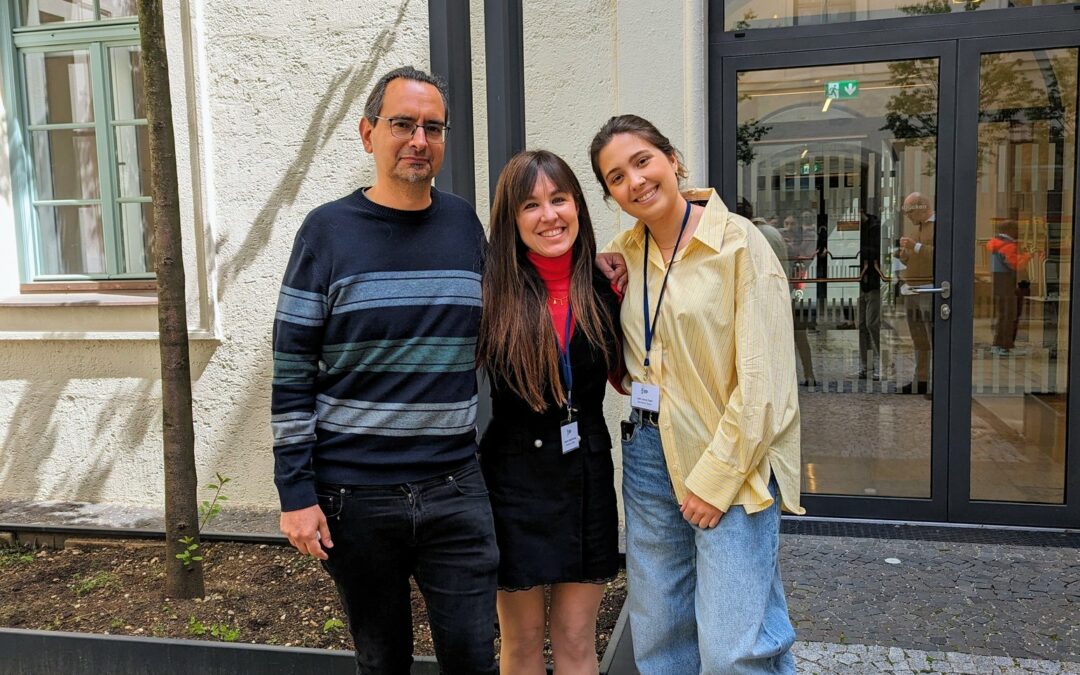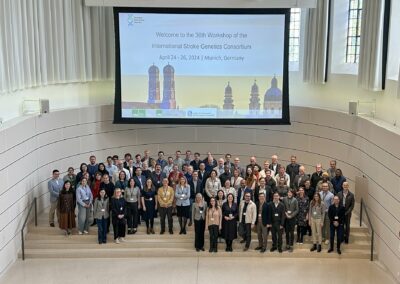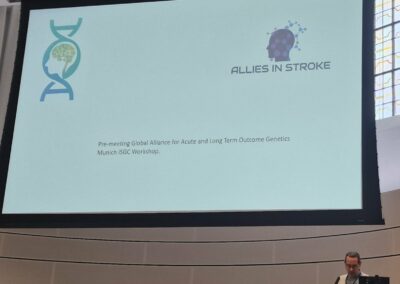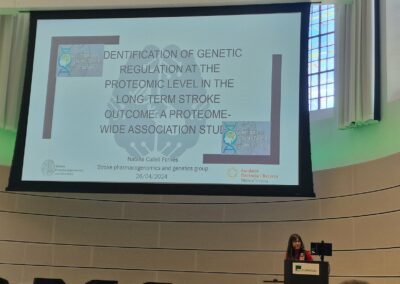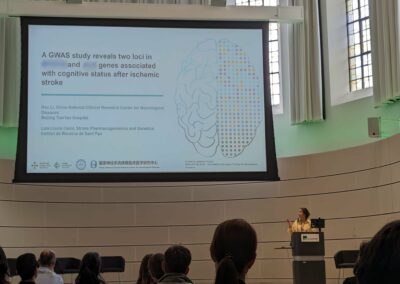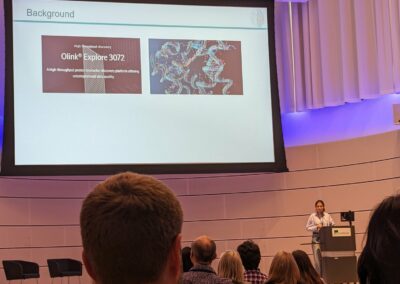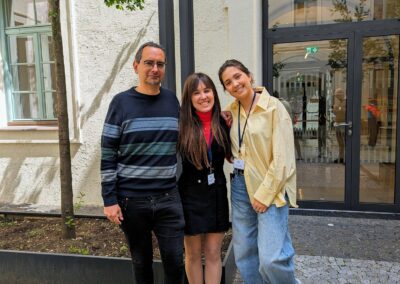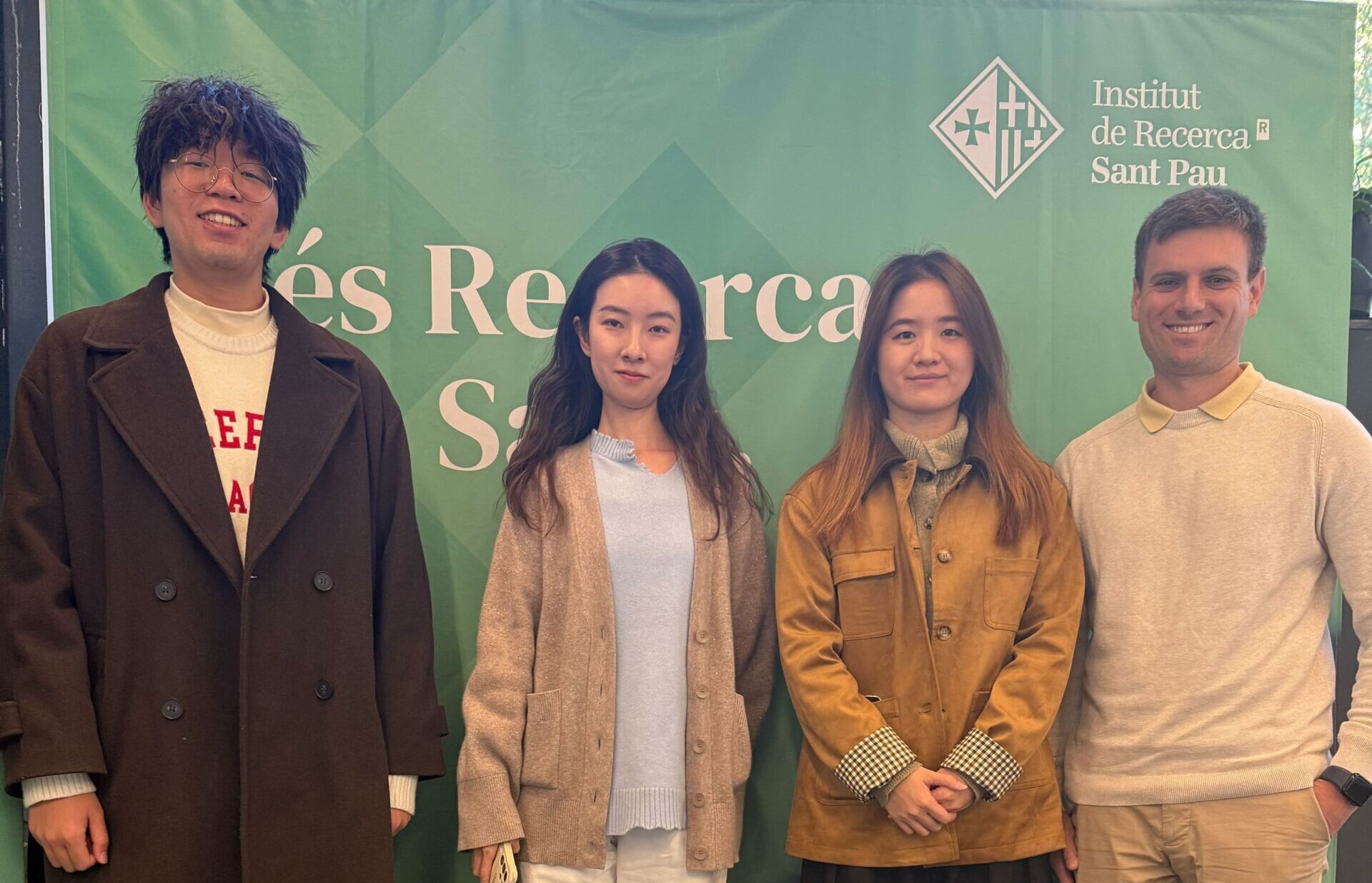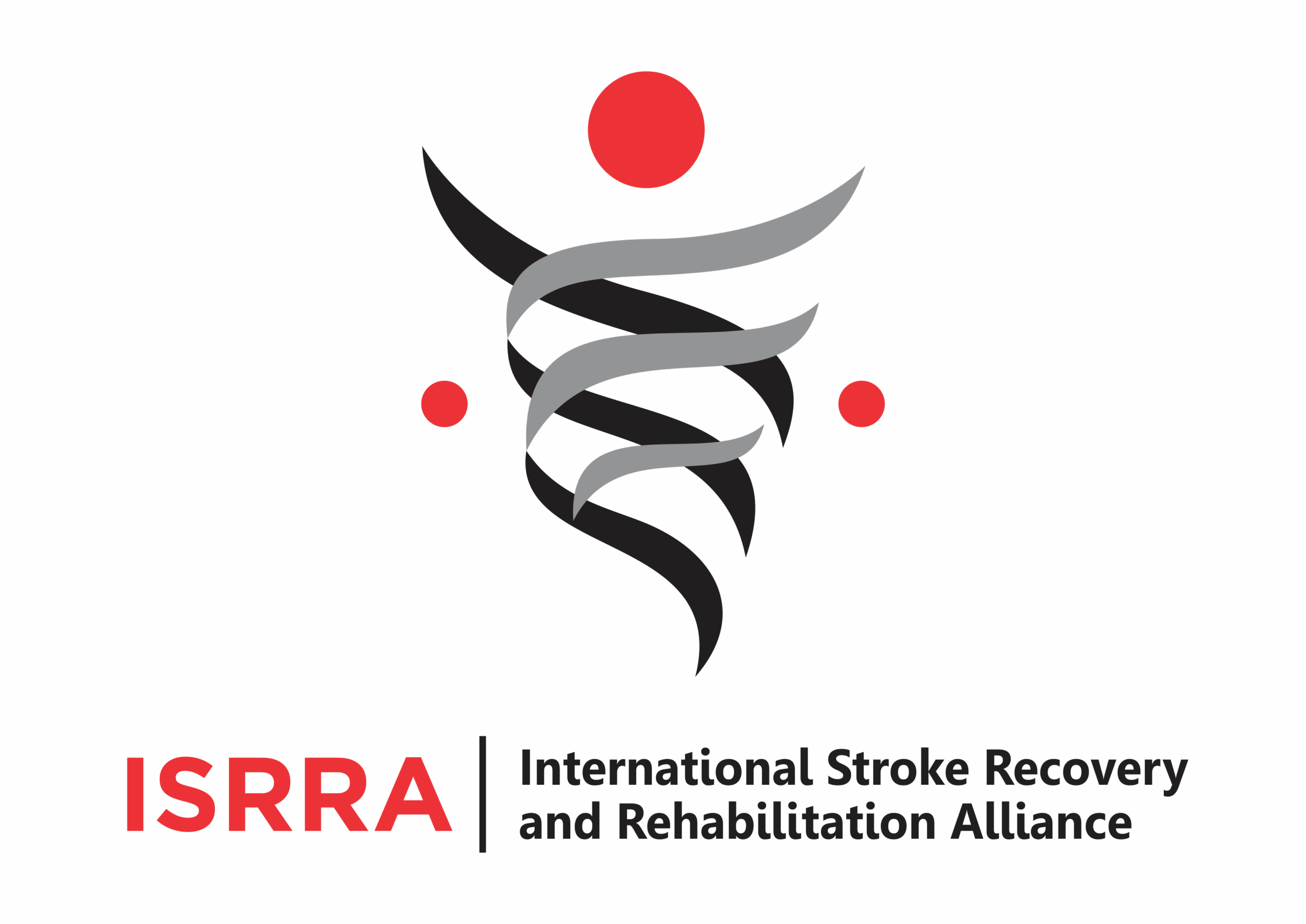Three members of our research team had the honor of attending and actively participating in the 30th Workshop of the International Stroke Genetics Consortium (ISGC), held from April 24th to April 26th in Munich. This pivotal event in the field of stroke genetics was a showcase of cutting-edge research and collaborative efforts aimed at understanding and treating stroke through genetic insights.
Israel Fernández Cadenas kicked off our team’s contributions with a significant presentation at the pre-meeting of the Global Alliance working group on April 24th. His update on the “Global Alliance For Acute and Long-term Outcome Genetics” highlighted the ongoing efforts to identify druggable targets that could improve outcomes after a stroke. This initiative is crucial as it paves the way for developing targeted therapies that could benefit stroke patients worldwide.
Natalia Cullell, a recipient of the ISGC Travel Award, shared her groundbreaking work on the genetic regulation at the proteomic level and its potential to facilitate drug repurposing to enhance post-stroke outcomes. Her presentation detailed findings from a pioneering PWAS/TWAS study, identifying potential neuroprotective drugs that could improve long-term outcomes for stroke survivors.
Laia Llucià delivered an exceptional presentation on the PREVICTUS study, which employs a proteome-wide analysis to identify plasma proteins associated with different ischemic stroke phenotypes. Laia’s talk was well-received, highlighting numerous promising proteomics results that could lead to new ways of predicting and treating stroke. Additionally, Laia and her colleague Hao Li provided new genomic insights into cognitive decline following ischemic stroke, offering a glimpse into potential interventions.
Attending the International Stroke Genetics Consortium (ISGC) workshop in Munich was an occasion for our team and the field of stroke genetics at large. Such conferences were crucial as they bring together leading experts and emerging researchers from around the world to share findings, discuss challenges, and forge collaborations. For our team, participating in this workshop highlighted the significance of continuous engagement with the global scientific community in driving forward the research on stroke and its genetic foundations. The insights gained and the connections made during this event are beneficial, helping to shape our ongoing projects and spark innovative approaches to understanding and treating stroke.
Moreover, the workshop served as an essential platform for presenting our latest research, receiving feedback from peers, and staying updated with the cutting-edge advancements in the field, all of which are essential for advancing our mission to reduce the impact of stroke through genetic research.

